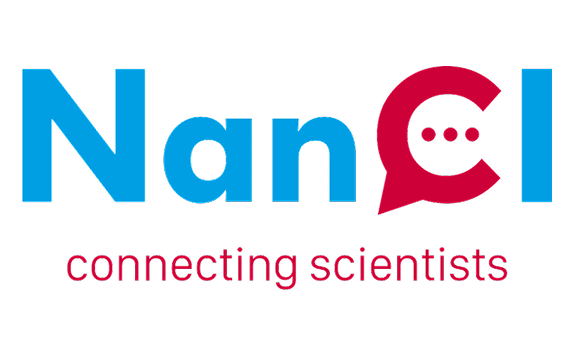Automates research processes to help accelerate cancer and chronic disease breakthroughs
Empowers researchers to manage high volumes of biomedical research literature
Provides networking, collaboration, and career growth opportunities using social connection features
The National Cancer Institute (NCI), Google Cloud, and Barnacle Labs developed NanCI, an app using advanced Gemini AI to recommend research papers, facilitate collaboration, support career growth, and accelerate cancer research.
The National Cancer Institute (NCI), Google Cloud, and Barnacle Labs developed NanCI, an app using advanced Gemini AI to recommend research papers, facilitate collaboration, support career growth, and accelerate cancer research.
The National Cancer Institute (NCI) has long been a cornerstone of cancer and chronic disease research, supporting groundbreaking discoveries and investing in career development for the next generation of scientists. As part of the National Institutes of Health (NIH), the organization empowers more than 3,000 scientists through grants, fellowships, and in-house training programs, and it embraces technology to better support the research process.
“Cancer research has accelerated tremendously in the last few decades,” says Dr. Oliver Bogler, former director of the Center for Cancer Training at NCI. “This is good news for science, but the resulting volume of information has swamped researchers. We need technologies that make staying up to date less overwhelming and more enjoyable to support their career growth.”
With more than 500 cancer research papers published daily, scientists often struggle to filter through content and keep up with new developments. Traditional methods like sifting through searches, alerts or keyword-based email summaries are cumbersome, making it difficult to home in on the papers that align with their research focus.
Cancer research has accelerated tremendously in the last few decades. This is good news for science, but the resulting volume of information has swamped researchers. We need technologies that make staying up to date less overwhelming and more enjoyable.
Dr. Oliver Bogler
Former Director, Center for Cancer Training, NCI
Dr. Bogler and his team also discovered that early-career scientists struggle to make meaningful professional connections despite being part of busy labs and career ecosystems. They wanted to foster more peer-to-peer and mentoring opportunities to guide their careers and enrich their scientific learning.
To address these challenges, NCI envisioned an AI-driven application that would provide scientists with personalized literature recommendations and social networking and collaboration features. Working with Google Cloud for its advanced multimodal foundation models like Gemini along with Barnacle Labs for its expertise in how AI can be used in the context of the scientific literature, the team created the NanCI app, a resource that fosters new opportunities for discovery and connection.
Supporting researchers in an age of information overload
The NCI began developing the NanCI app under the Science and Technology Research Infrastructure for Discovery, Experimentation, and Sustainability (STRIDES) Initiative, a NIH program that advances cloud computing in biomedical research and breakthroughs in cancer and chronic diseases. This gave NCI access to an agile development environment and expert engineers, speeding up implementation cycles while maintaining compliance with regulations.
We wanted to build a solution that would automate literature curation with an integrated social networking component to bring joy back into the scientific process. That’s what the NanCI app is for: enabling discovery, connection, and collaboration.
Dr. Oliver Bogler
Former Director, Center for Cancer Training, NCI
Built in collaboration with Google Cloud and Barnacle Labs, NanCI is a personalized research assistant for scientists at every stage of their careers. It uses Gemini's long context windows and advanced document understanding to cut through scientific jargon and data to reveal core insights, facilitating peer connections and strengthening the research community.
“We wanted to build a solution that would automate literature curation with an integrated social networking component to bring joy back into the scientific process,” Bogler explains. “That’s what the NanCI app is for: enabling discovery, connection, and collaboration.”
Using Gemini models and semantic search technology, NanCI delivers research paper recommendations based on a user’s interests.
Researchers can create folders to categorize their areas of focus — for example, triple-negative breast cancer — bookmark key papers, and generate specific questions for each piece of research. NanCI analyzes this information to surface the most relevant papers for their exact research focus, summarize papers, suggest questions they might want to ask, and enable a chat-with-the-paper function to provide instant answers to critical questions. Unlike traditional keyword-driven searches, NanCI drives higher quality recommendations to create an interactive, intuitive process that saves researchers both time and effort while delivering personalized insight.
Users can also choose to make their folders public, creating opportunities to connect with peers with similar interests. They can follow experts’ public folders to gain curated insights from top researchers in their fields, collaborate with the global research community, and discover new people to connect with and events to attend. By adding these social network elements, NanCI promotes mentorship, connection, and a sense of community in the scientific world.

A personalized AI assistant for the next generation of scientists
NanCI is still in its early stages, with more than 100 academic institutions participating. However, early testers have embraced the app’s personalized AI recommendations and social connection features to manage high volumes of research literature and engage with peers.
As the NanCI app continues to evolve, NCI, Google Cloud, and Barnacle Labs are exploring additional features like collaborative workspaces where teams of researchers can build shared folders and engage in AI-augmented discussions, along with the integration of additional public research resources, and the expansion into web and Android compatibility.
The team also has long-term plans to expand NanCI into high schools and engage with the next generation of researchers and scientists. “Part of our goal with NanCI is to get young people excited about cancer research and introduce young minds to science in an accessible way,” Bogler says. “With NanCI, they can use the phone in their pocket to summarize any research paper that interests them in language they can understand.”
Combining Gemini models with NCI’s mission-driven approach, NanCI is reshaping how science is accessed, shared, and advanced. This collaboration is building a more connected and empowered research community, which will ultimately help accelerate the pace of innovation and breakthroughs.
Part of our goal with NanCI is to get young people excited about cancer research and introduce young minds to science in an accessible way. With NanCI, they can use the phone in their pocket to summarize any research paper that interests them in language they can understand.
Dr. Oliver Bogler
Former Director, Center for Cancer Training, NCI
The National Cancer Institute (NCI) is the federal government's principal agency for cancer research and training. Their team of approximately 3,500 is part of the National Institutes of Health (NIH), one of 11 agencies that make up the Department of Health and Human Services (HHS). NCI is deeply committed to core values that allow all staff to reach their potential and fully contribute to the institute’s cancer mission.
Industry: Government
Location: United States
Products: Google Cloud, Gemini, NotebookLM












